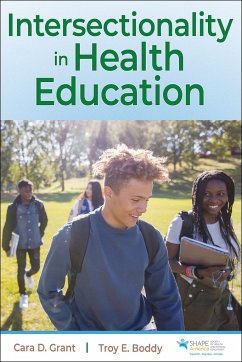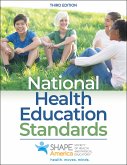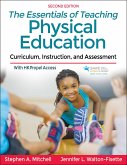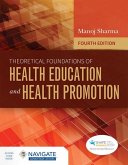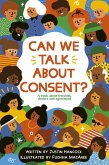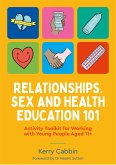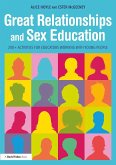- Broschiertes Buch
- Merkliste
- Auf die Merkliste
- Bewerten Bewerten
- Teilen
- Produkt teilen
- Produkterinnerung
- Produkterinnerung
Through 10 case studies, Intersectionality in Health Education amplifies the crucial issues that negatively affect Black students, provides teaching strategies that affirm the worth of â Black and . . .â students, and addresses intentional or unconscious biases that harm Black youths.
Andere Kunden interessierten sich auch für
![National Health Education Standards National Health Education Standards]() SHAPE America - Society of Health and Physical EducatorsNational Health Education Standards54,99 €
SHAPE America - Society of Health and Physical EducatorsNational Health Education Standards54,99 €![The Essentials of Teaching Physical Education The Essentials of Teaching Physical Education]() Stephen A. MitchellThe Essentials of Teaching Physical Education109,99 €
Stephen A. MitchellThe Essentials of Teaching Physical Education109,99 €![Theoretical Foundations of Health Education and Health Promotion Theoretical Foundations of Health Education and Health Promotion]() Manoj SharmaTheoretical Foundations of Health Education and Health Promotion89,99 €
Manoj SharmaTheoretical Foundations of Health Education and Health Promotion89,99 €![Promoting Health and Academic Success Promoting Health and Academic Success]() Promoting Health and Academic Success94,99 €
Promoting Health and Academic Success94,99 €![Can We Talk About Consent? Can We Talk About Consent?]() Justin HancockCan We Talk About Consent?9,49 €
Justin HancockCan We Talk About Consent?9,49 €![Relationships, Sex and Health Education 101 Relationships, Sex and Health Education 101]() Kerry CabbinRelationships, Sex and Health Education 10139,99 €
Kerry CabbinRelationships, Sex and Health Education 10139,99 €![Great Relationships and Sex Education Great Relationships and Sex Education]() Alice HoyleGreat Relationships and Sex Education33,99 €
Alice HoyleGreat Relationships and Sex Education33,99 €-
-
-
Through 10 case studies, Intersectionality in Health Education amplifies the crucial issues that negatively affect Black students, provides teaching strategies that affirm the worth of â Black and . . .â students, and addresses intentional or unconscious biases that harm Black youths.
Hinweis: Dieser Artikel kann nur an eine deutsche Lieferadresse ausgeliefert werden.
Hinweis: Dieser Artikel kann nur an eine deutsche Lieferadresse ausgeliefert werden.
Produktdetails
- Produktdetails
- Verlag: Human Kinetics Publishers
- Seitenzahl: 144
- Erscheinungstermin: 15. Januar 2024
- Englisch
- Abmessung: 228mm x 153mm x 12mm
- Gewicht: 246g
- ISBN-13: 9781718221741
- ISBN-10: 1718221746
- Artikelnr.: 68802436
- Verlag: Human Kinetics Publishers
- Seitenzahl: 144
- Erscheinungstermin: 15. Januar 2024
- Englisch
- Abmessung: 228mm x 153mm x 12mm
- Gewicht: 246g
- ISBN-13: 9781718221741
- ISBN-10: 1718221746
- Artikelnr.: 68802436
Cara D. Grant, EdD, is the preK-12 health and physical education supervisor in a large Maryland school district. She is also a lecturer in the department of kinesiology and is the MCERT (master of education with certification) professional development schools coordinator with the College of Education. Grant earned her undergraduate degree from the University of Maryland–College Park; a master’s degree in secondary education, with a specialization in curriculum and instruction, from Bowie State University; and a doctorate in educational leadership from the University of Phoenix. She has worked in education, curriculum development, and teacher professional development for over 20 years in preK-12 education and for more than 4 years in higher education. She is a board member for the Society of Health and Physical Educators of Maryland (SHAPE Maryland) and serves as the chair for the Maryland State Department of Education Advisory Council on Health and Physical Education. She also serves on SHAPE America’s board of directors and is the SHAPE America president-elect. Troy E. Boddy, DOL, is the retired director of equity initiatives for Montgomery County Public Schools in Rockville, Maryland. In this role, he and his team were responsible for supporting the development practices, policies, and procedures that create access, opportunities to learn, and equitable academic and social-emotional outcomes for underserved students. He has coordinated the design and delivery of 27 equity training modules that build the awareness, knowledge, and skills necessary to ensure schools create the conditions needed to produce equitable outcomes for student achievement and success. Additionally, Boddy is the cofounder of Student Equity Advocates and the Building Our Network of Diversity (BOND) Project. He is the codirector of the Sandy Spring Slave Museum, where he leads educational programs and professional learning. His publications include contributions to a case study for Life Case Studies for Inclusive Educators (2018) and Grandpa’s River, a computer-integrated cross-curricular simulation (2001). Boddy is currently the president of the East Coast Racial Equity Group and provides consulting services to companies, schools, and community organizations on the subject of addressing equity and creating equitable workplaces.
Case Study 1: “Why Can’t You Just Ask for Help?”
The dilemma of Black health care access, socioecological factors, and
social determinants of health
Cara D. Grant
Case Study 2: “Don’t You All Do That?”
The stories we tell ourselves about others
Patricia Morgan
Case Study 3: How I Show Up: Black and Excellent
Self-awareness and social awareness in a predominantly white environment
Troy E. Boddy
Case Study 4: “Follow the Rules or Get Out of My Class”
Examining classroom climate and culturally responsive teaching
Brendan Joseph Tassy
Case Study 5: Black Joy
Moving away from a deficit narrative about Black girls
Deanna Toler Kuhney
Case Study 6: Learning From Landi
Intentionally creating health and physical education spaces with Black and
Brown girls in mind
Porsche Vanderhorst
Case Study 7: The Danger of a Single Narrative
Perceptions, identity, and opportunities for Black males
Daryl C. Howard
Case Study 8: “What’s Your Pronoun?”
Navigating sexuality, gender expression, and LGBTQ+ community in health
education
Tiffany Monique Quash
Case Study 9: “Pull Yourself Up by Your Bootstraps”
Understanding the cycle of poverty
Anika Thrower
Case Study 10: “It’s Time to Eat!”
Considering food justice and food equity
Victor Ramsey
Conclusion
The dilemma of Black health care access, socioecological factors, and
social determinants of health
Cara D. Grant
Case Study 2: “Don’t You All Do That?”
The stories we tell ourselves about others
Patricia Morgan
Case Study 3: How I Show Up: Black and Excellent
Self-awareness and social awareness in a predominantly white environment
Troy E. Boddy
Case Study 4: “Follow the Rules or Get Out of My Class”
Examining classroom climate and culturally responsive teaching
Brendan Joseph Tassy
Case Study 5: Black Joy
Moving away from a deficit narrative about Black girls
Deanna Toler Kuhney
Case Study 6: Learning From Landi
Intentionally creating health and physical education spaces with Black and
Brown girls in mind
Porsche Vanderhorst
Case Study 7: The Danger of a Single Narrative
Perceptions, identity, and opportunities for Black males
Daryl C. Howard
Case Study 8: “What’s Your Pronoun?”
Navigating sexuality, gender expression, and LGBTQ+ community in health
education
Tiffany Monique Quash
Case Study 9: “Pull Yourself Up by Your Bootstraps”
Understanding the cycle of poverty
Anika Thrower
Case Study 10: “It’s Time to Eat!”
Considering food justice and food equity
Victor Ramsey
Conclusion
Case Study 1: “Why Can’t You Just Ask for Help?”
The dilemma of Black health care access, socioecological factors, and
social determinants of health
Cara D. Grant
Case Study 2: “Don’t You All Do That?”
The stories we tell ourselves about others
Patricia Morgan
Case Study 3: How I Show Up: Black and Excellent
Self-awareness and social awareness in a predominantly white environment
Troy E. Boddy
Case Study 4: “Follow the Rules or Get Out of My Class”
Examining classroom climate and culturally responsive teaching
Brendan Joseph Tassy
Case Study 5: Black Joy
Moving away from a deficit narrative about Black girls
Deanna Toler Kuhney
Case Study 6: Learning From Landi
Intentionally creating health and physical education spaces with Black and
Brown girls in mind
Porsche Vanderhorst
Case Study 7: The Danger of a Single Narrative
Perceptions, identity, and opportunities for Black males
Daryl C. Howard
Case Study 8: “What’s Your Pronoun?”
Navigating sexuality, gender expression, and LGBTQ+ community in health
education
Tiffany Monique Quash
Case Study 9: “Pull Yourself Up by Your Bootstraps”
Understanding the cycle of poverty
Anika Thrower
Case Study 10: “It’s Time to Eat!”
Considering food justice and food equity
Victor Ramsey
Conclusion
The dilemma of Black health care access, socioecological factors, and
social determinants of health
Cara D. Grant
Case Study 2: “Don’t You All Do That?”
The stories we tell ourselves about others
Patricia Morgan
Case Study 3: How I Show Up: Black and Excellent
Self-awareness and social awareness in a predominantly white environment
Troy E. Boddy
Case Study 4: “Follow the Rules or Get Out of My Class”
Examining classroom climate and culturally responsive teaching
Brendan Joseph Tassy
Case Study 5: Black Joy
Moving away from a deficit narrative about Black girls
Deanna Toler Kuhney
Case Study 6: Learning From Landi
Intentionally creating health and physical education spaces with Black and
Brown girls in mind
Porsche Vanderhorst
Case Study 7: The Danger of a Single Narrative
Perceptions, identity, and opportunities for Black males
Daryl C. Howard
Case Study 8: “What’s Your Pronoun?”
Navigating sexuality, gender expression, and LGBTQ+ community in health
education
Tiffany Monique Quash
Case Study 9: “Pull Yourself Up by Your Bootstraps”
Understanding the cycle of poverty
Anika Thrower
Case Study 10: “It’s Time to Eat!”
Considering food justice and food equity
Victor Ramsey
Conclusion
